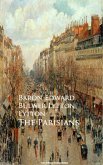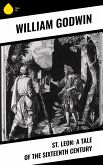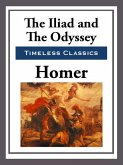In "Lucile," Edward Bulwer Lytton masterfully intertwines poetry and prose to narrate the poignant tale of a young woman caught in the complex web of love, societal expectations, and personal virtue. The novel employs a rich, lyrical style that reflects the aesthetic sensibilities of the Victorian era, while also addressing contemporary issues of gender and class. Lytton'Äôs choice to structure the narrative around verse enhances its emotional depth, inviting readers to engage with the characters' inner turmoil while simultaneously enjoying the beauty of language. The novel presents a vivid portrayal of London life and the moral dilemmas faced by its characters, positioning it within the broader context of 19th-century literature. Edward Bulwer Lytton, a prominent Victorian author, was a man of diverse talents 'Äî a novelist, dramatist, and politician. His extensive knowledge of society'Äôs intricacies is evident in "Lucile," revealing a deep concern for social reform and the plight of women in the 19th century. Lytton's own experiences, including his tumultuous personal life and political ambitions, informed his narrative, enriching the thematic complexity of the novel. "Lucile" is an essential read for those interested in the intersections of romance and social commentary within Victorian literature. Lytton's exploration of human emotions and societal constraints offers timeless insights, making the novel relevant for contemporary discussions about gender and social dynamics. Immerse yourself in this captivating work that not only entertains but also provokes thought and reflection.
Dieser Download kann aus rechtlichen Gründen nur mit Rechnungsadresse in A, B, BG, CY, CZ, D, DK, EW, E, FIN, F, GR, H, IRL, I, LT, L, LR, M, NL, PL, P, R, S, SLO, SK ausgeliefert werden.









